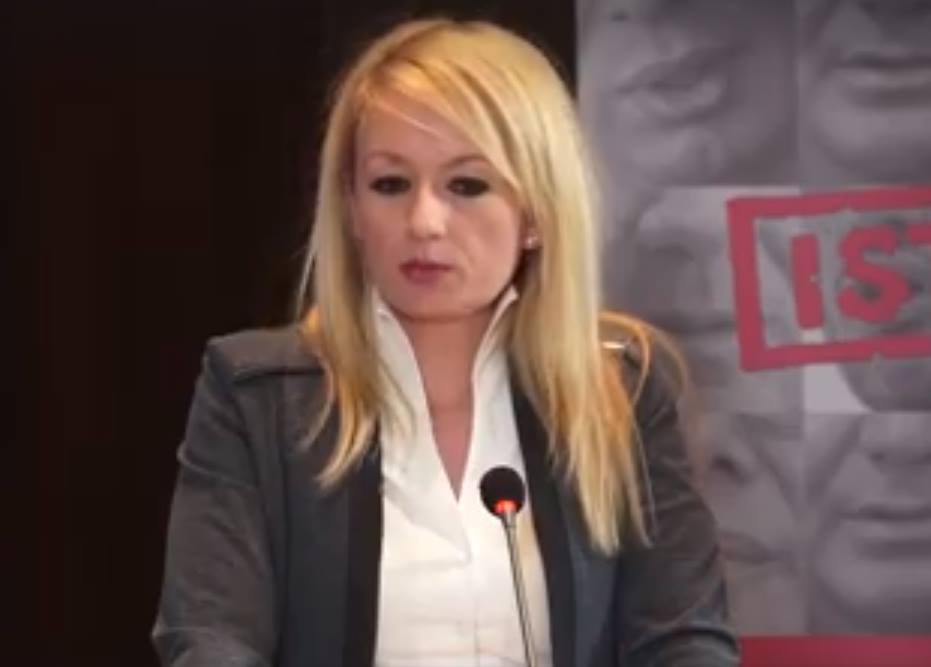Dragana Trifkovic for SPUTNIK
Previous week, Dutch Defense Minister said that the Russian Ambassador to the Netherlands had been summoned to the Foreign Ministry in light of the Dutch allegations that Russians had attempted to carry out a cyberattack on OPCW in The Hague. Sputnik spoke to Dragana Trifkovic, head of the Belgrade-based Center for Geostrategic Studies for more.

Sputnik: It’s been reported that the Russian nationals were expelled from the Netherlands in April. Why, in your view, did the Dutch Defense Minister reveal this information now?
Dragana Trifkovic: Everybody remembers the Cold War period for the constant search for foreign spies. However, now the situation is drastically worse and it seems that the West is in a kind of paranoia. We see constant accusations against Russia, mostly without any evidence. Several cases gave the impression that a vigorous propaganda campaign against Russia is being conducted.
The West accuses Russia of interfering in the elections, for an aggressive behavior, propaganda, cyber-attacks, and so on. If we analyze the facts in real terms, we will realize that the situation is completely the opposite, and that in fact those who accuse, it is them who have been interfering everywhere for years. If we are talking about someone's aggressive behavior, it is enough to remember who in the past years bombed and destroyed many countries. In this case, it is strange that the information that they allegedly discovered in April, has been published only now, but if we assume that a campaign is being conducted against Russia, then we can conclude that everything has been adapted to the needs of continuous pressure on Russia.
Sputnik: Russia’s Foreign ministry responded by saying that since Russia is a member of the OPCW it didn’t have the need to hack it as its network is open for members. What’s your assessment of this?
Dragana Trifkovic: There is no single logical reason why Russia would need to hack this organization, of which it is a member. Russia is recognizable in that it respects international law, established rules and codes of conduct. Russia is in a constant position to remind others that they are obliged to act according to established rules. In addition, Western countries have been involved in setting up of chemical attacks in Syria several times, for which they wanted to accuse the Syrian authorities. How can we after all this, believe in such claims if we know these facts? Nowadays, when communication is available to everyone and when technology is far advanced, rough manipulation becomes increasingly unfeasible. Hence, Western colleagues are getting more and more nervous and they bring out all the more illogical claims. Such behavior cannot lead to normal dialogue and good diplomatic relations, but to the production of conflicts.
Sputnik: Observers say that nearly every country has its own state cyber teams responsible for maintaining national security. Who sets the rules here?
Dragana Trifkovic: The problem is that the West often uses ambiguity in the set rules, and abuses of ambiguity or of the complexity of a mechanism. They tend to always have double standards, so those rules that apply to others do not apply to them and vice versa, and they also set the rules in the way that it suits them. As far as cyber security is concerned, this topic has been very relevant in recent years. Russia invests a lot for the development of this "science". Everything would be much easier for the West if they had a more honest relationship with others, and if they wanted to work on partnership relations with other countries, especially with Russia.
Sputnik: The cyberattacks, real or alleged, clearly exposed the vulnerabilities of the affected states. How could Europe defend itself from more attacks in the future?
Dragana Trifkovic: Cyber terrorism will be increasingly relevant and Europe needs to focus on finding adequate methods to fight it. I think that Germany is very much dedicated to this topic, as far as Europe is concerned.
In terms of security, Europe could work more closely with Russia and commit to achieving good cooperation with Russia and China in this field. I think this is in the interest of all. It is a big problem that there is no will to cooperate, for a normal dialogue, for exchange of experiences and cooperation from the European countries. In such a position, it is Europe that can lose the most.
Sputnik: This statement today came on the heels of UK’s claim that nearly all cyber-attacks recently can be attributed to the GRU even though it has been reported numerous times before. In your view, who in London benefits the most from the deteriorating relations with Russia and how?
Dragana Trifkovic: Great Britain has gone the farthest with its intolerance towards Russia. They became the leader in the anti-Russian hysteria, or of accusing Russia without any evidence. It is a bad practice to impose responsibility on Russia before any solid evidence or results of an investigation. The worsening of the relations between Great Britain and Russia, as well as relations between other European countries towards Russia, can only be in the interests of the United States. They always find their interest in the confrontation between Russia and Europe. I think that the current British leadership often draws public attention from its own problems, accusing Russia of various things. It is necessary that international relations are reset and built on realistic bases and mutual respect, which Russia advocates.
8. October 2018.





